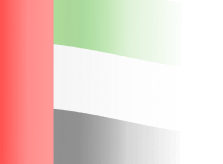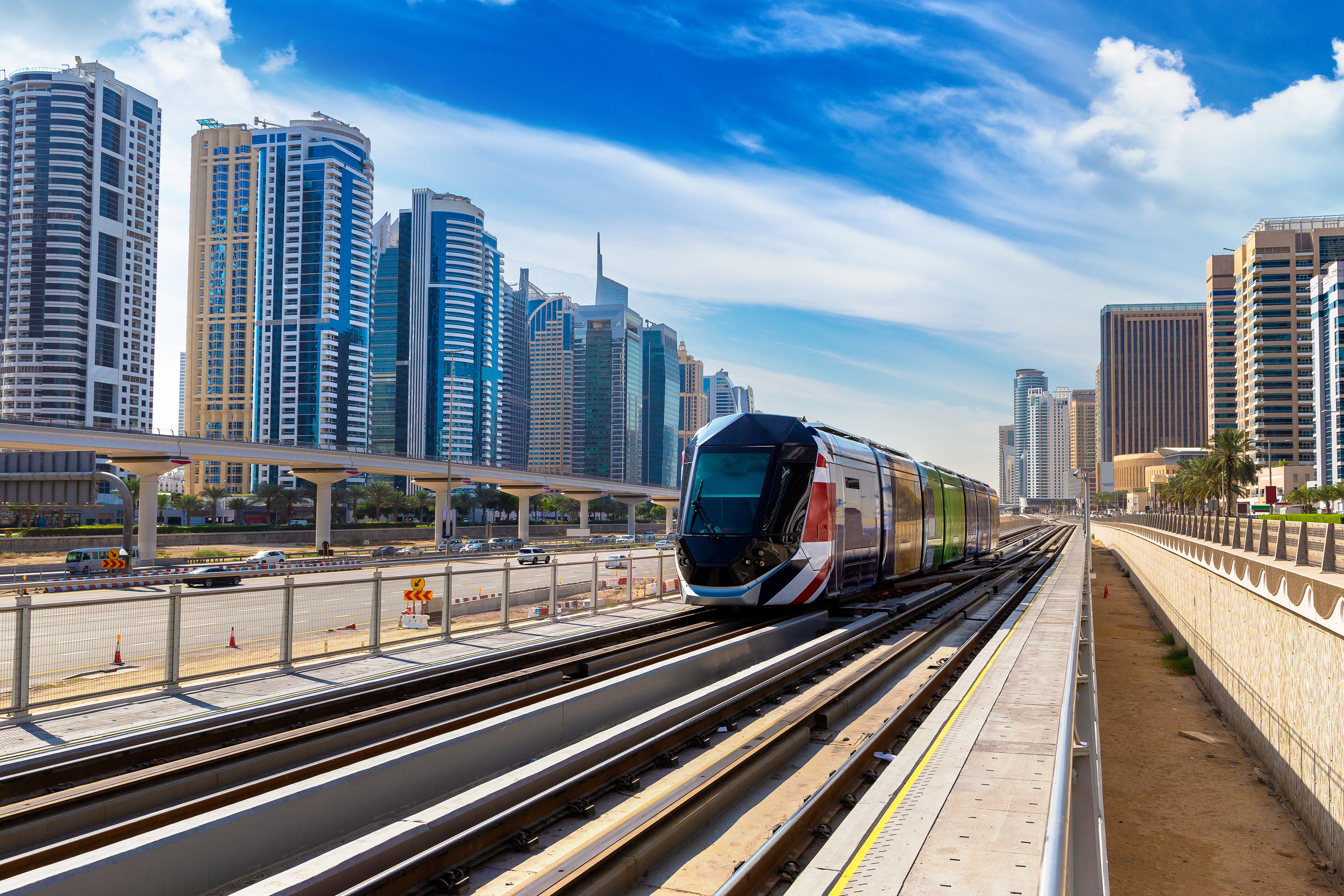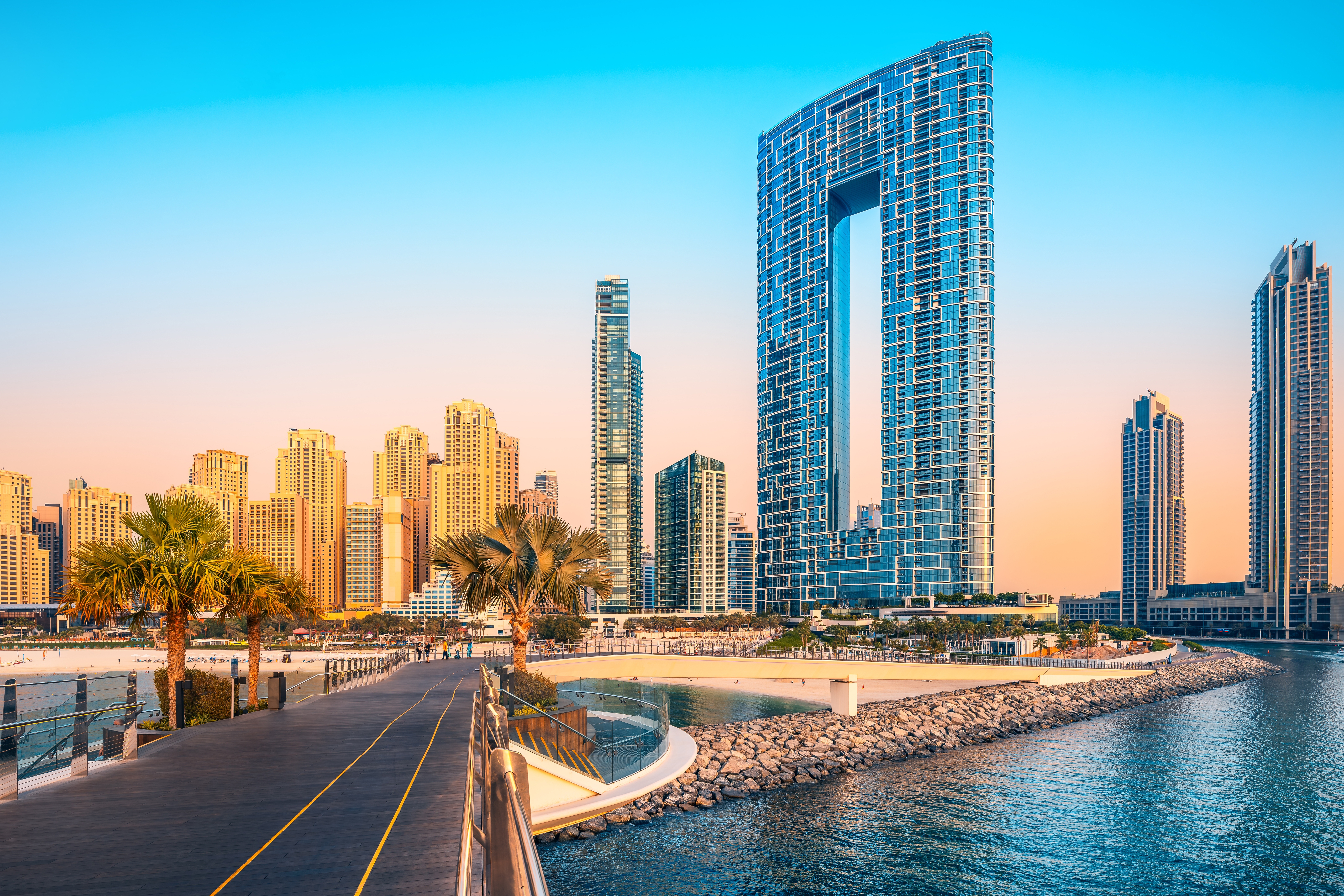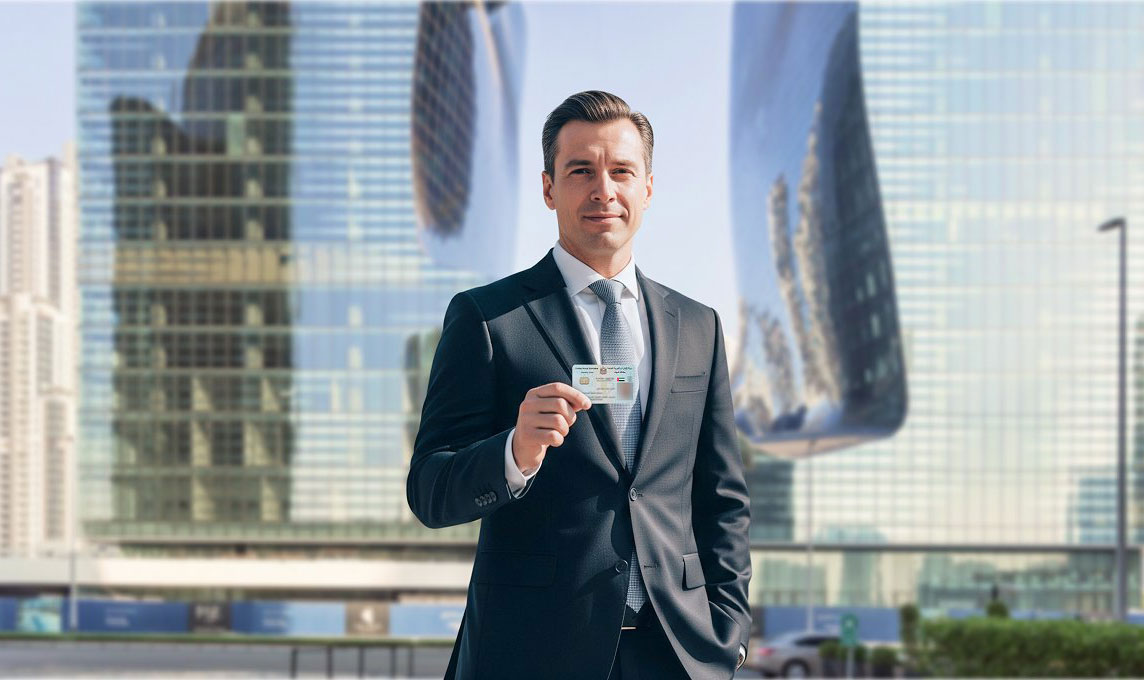Living in Dubai provides immigrants with numerous benefits, particularly in terms of professional growth and career opportunities. In this multicultural nation, where ethnic Emiratis represent only about 15% of the population, the focus is on welcoming foreigners eager to contribute to the local market and invest in lucrative projects.
Level and quality of life in Dubai in 2026 year
Each year, the UN publishes the Human Development Index (HDI), where the UAE consistently ranks among the top nations. This study aims to identify countries with the most favourable living conditions, emphasizing that a state’s ultimate goal should extend beyond economic indicators to include the opportunities available to its people. With each new report, the UAE achieves higher rankings, reflecting the nation’s stable government, accessible education and healthcare, high average life expectancy, excellent quality of life, and rapidly growing economy.
In the latest UN ranking, the UAE is ranked 17th with an HDI of 0.937 and a classification of “very high.” Notably, the country at the top of the list has an index of 0.967, highlighting a minimal gap.
The average salary in Dubai exceeds $3,000, which aligns well with the cost of living. The unemployment rate is remarkably low, at just 3.1%, compared to more than 5% in many EU countries. While the UAE is widely regarded as a hub for the oil industry, the government has shifted its focus in recent years. Today, it prioritizes diversifying the economy by implementing innovative programs to support businesses and attract foreign investment.

Pros and cons of living in Dubai
Dubai, an emirate known for its unique lifestyle, stands out due to its multicultural society, cosmopolitan outlook, rapid economic growth, and significant attraction of foreign investment. It remains remarkable how, in such a short time, ultramodern cities with some of the most favorable living conditions have emerged from the desert. While living in Dubai requires a minimum monthly income of around $5,000, the city continues to draw immigrants from around the world. This is because Dubai offers the potential for high earnings, prosperity, and exceptional comfort. Below, you can evaluate the advantages and disadvantages of living in the UAE based on key criteria.
Social protection
Social policy in the UAE primarily focuses on supporting its citizens. Emirati nationals benefit from extensive state-provided protections, including significant subsidies for utility bills, unemployment benefits, childcare support, pensions, free healthcare and education, assistance for young families, and long-term loans with minimal interest rates. For tourists visiting the country for up to three months, none of these privileges are available. Residents, however, may receive partial assistance from the state. Some social benefits are funded by employer-financed contributions, making it essential for jobseekers to carefully review their employment contracts to ensure key guarantees are included. Access to medical care requires insurance, but foreigners are not eligible for pension benefits unless they obtain UAE citizenship.
Labour market
The UAE boasts a minimal unemployment rate, which has stabilized since the end of the pandemic. The well-developed labour market is heavily reliant on a foreign workforce. While job opportunities exist across all sectors, most immigrants are employed in wholesale and retail trade, construction, and real estate. The Ministry of Human Resources and Emiratization is actively implementing innovative measures to expand the labour market. For instance, employers can now create temporary positions, employees are allowed to work for multiple companies simultaneously, and unemployment insurance has been introduced to provide additional security.

Salary levels
In the UAE, minimum salaries start at approximately $1,190, while the highest average salaries reach up to $6,500. Earnings vary depending on the industry and position, but overall, salaries are considered competitive, with the average being around $5,000. This salary level can be expected in industries such as construction, real estate, finance and banking, information technology, insurance, and healthcare. In sectors like services, transportation, logistics, and manufacturing, salaries typically range from $3,000 to $4,500.
Business environment
The UAE is widely regarded as one of the most business-friendly countries in the world. According to the World Bank’s Ease of Doing Business report, it ranks 16th globally. Registering and growing a company in the UAE is relatively straightforward, thanks to the presence of free economic zones and the government’s provision of modern industrial and commercial facilities. A significant portion of businesses in Dubai are foreign-owned, supported by attractive immigration programs designed to encourage international entrepreneurship. The government actively fosters favorable conditions for foreign investment, simultaneously driving economic growth and enabling immigrants to successfully establish and promote their businesses.
Get a consultation
Medicine
The UAE boasts a highly developed healthcare sector driven by two key government objectives: meeting the needs of the local population and establishing the country as a hub for medical tourism. Clinics are equipped with state-of-the-art technology, staffed by highly qualified and experienced specialists, and supported by modern, efficient infrastructure. The integration of advanced information technology further enhances patient comfort, service speed, and overall quality. The UAE has initiated dozens of hospital construction and renovation projects, with the healthcare sector expanding rapidly thanks to well-regulated competition and strategic investments.
Education
Over the past decade, the UAE has prioritized the development of its education system, aiming to build an inclusive and thriving society. Educational standards have been aligned with global benchmarks, enabling graduates from local schools to seamlessly gain admission to universities abroad. Additionally, UAE universities now compete with leading institutions in the US and Europe, often collaborating on joint programs. The country offers both private and public secondary schools, as well as higher educational institutions. International commercial schools and universities are particularly popular, reflecting the UAE’s commitment to fostering world-class education.
Cost of living
The cost of living in Dubai aligns with its salary levels. While the country offers significant opportunities for high earnings, it also entails considerable expenses to sustain a comfortable lifestyle. Monthly living costs for one person, excluding rent, amount to approximately $1,090. Renting a one-bedroom apartment ranges from $1,200 to $2,000 per month, depending on its proximity to the city center. Real estate prices start at $2,400 per square meter. Utilities average $200 per month, a meal for two at a restaurant costs around $81, and a basic grocery basket for a few days is approximately $50. Despite the high cost of living, especially for food, its quality is noteworthy. According to relevant industry rankings, Dubai maintains strong positions and continues to improve by implementing the highest international safety standards.

Ecology
The UAE’s natural features and ecosystems are not its strongest assets. Despite successfully building modern cities and stabilizing its economy in a desert environment with scarce water and soil degradation, environmental challenges remain significant. Many visitors note that breathing in the Emirates can feel difficult, partly due to the region’s naturally low oxygen levels. Key environmental issues include air pollution, desertification, overfishing, excessive waste generation, and limited water resources. Addressing these challenges requires ongoing and proactive measures from the government.
Transportation
A few decades ago, camels were more common than cars on Dubai’s roads. Today, however, the country’s transportation system, along with its infrastructure, is recognized as one of the most advanced in the world. Dubai offers widely available and efficient taxi services, comfortable public buses, marine transportation, and a modern metro system. The government aims to transition at least 25% of transportation to autonomous modes by 2030. The cost of public bus and taxi travel aligns with the overall cost of living and salary levels. It is worth noting that while most citizens own personal vehicles, public transport is predominantly used by immigrant workers.
Get a consultation
Taxes
A key feature of the UAE tax system that draws immigrants is the absence of personal income tax. Only corporate tax is applied, based on the net profit of commercial companies. The rate varies depending on income: 0% for profits up to 375,000 AED (approximately 102,000 USD) and 9% for amounts exceeding this threshold. These favorable conditions enable foreign entrepreneurs to optimize business growth and achieve strong economic results. Tourists should note that Dubai also imposes a hotel tax.
Tax optimization is a key motivator for business immigration to the UAE. To understand the specifics and create a tailored action plan, it’s advisable to consult an .
The best neighborhoods in Dubai to live in
Choosing a neighborhood in Dubai depends on the personal priorities of the individual. For some, factors such as housing prices, living costs, business opportunities, and employment conditions are key. For others, the availability of entertainment venues, attractions, or a quiet, family-friendly atmosphere with opportunities for children’s education and development takes precedence. Based on various factors and statistics, the following are some of the most popular neighborhoods in Dubai:
- Mirdif.
Mirdif is a secure neighborhood with minimal crime rates, providing a safe and comfortable environment for foreigners, including those looking to invest in real estate. The area features excellent infrastructure, an active nightlife, and relatively affordable housing prices compared to other locations. It is particularly popular with families due to its abundance of green spaces and parks. Residential options primarily consist of complexes and private villas. Mirdif is also home to numerous shopping and entertainment centers, making it a hub for local residents and a promising location for investments in commercial projects. Job opportunities for immigrant workers are plentiful in this area. - Emirates Hills.
Often compared to Beverly Hills, Emirates Hills is an upscale district known for its concentration of luxury homes. The area is developed by the UAE’s most renowned real estate companies and offers a variety of high-end properties for personal use or investment. Emirates Hills is closely associated with the elite business community, with most homeowners being wealthy Emirati families. The district is known for landmarks such as the Address Montgomerie golf course, where properties with views of the course are among the most expensive. Real estate investment in Emirates Hills is highly profitable due to its modern projects and exclusivity. Many local business leaders have stakes in construction and development companies operating here. - Jumeirah.
Jumeirah is a coastal area that combines elite residences with popular tourist and resort destinations. Its clean beaches and well-developed infrastructure ensure stable returns on real estate investments. The area offers a mix of apartments, villas, studio apartments, and numerous hotel developments, making it a hotspot for profitable investments. Business elites in Jumeirah often focus on developing tourist locations that attract visitors worldwide, generating significant revenue. - Dubai Marina.
Dubai Marina is a luxurious residential district situated along canals near the Persian Gulf coastline. It features numerous shopping centers, entertainment complexes, open-air restaurants, and attractions, making it an excellent area for real estate investment. Regarded as an elite resort, housing prices here are second only to properties in central Dubai. The area predominantly offers apartments and penthouses. Due to its high level of development, available land for new projects is limited, creating urgency for interested investors. Dubai Marina’s resort-like atmosphere attracts business leaders focused on real estate and tourism-related projects. - Arabian Ranches.
Located on the outskirts of the city, Arabian Ranches offers a tranquil, laid-back atmosphere ideal for families and immigrants seeking a quieter lifestyle. Originally a suburban location, the area has evolved into a well-developed district with excellent infrastructure. Recreational and entertainment options are plentiful, and housing primarily consists of townhouses and villas. Despite its distance from the city center, the district is well-connected by major highways, ensuring quick access to other parts of Dubai. Arabian Ranches is actively developing, making it a promising area for real estate investments and commercial projects, particularly in tourism and entertainment.
You can relocate permanently to one of Dubai’s desirable neighborhoods by obtaining a residence permit through business registration. The specifics of the permit, including requirements, conditions, and timelines, can be discussed during a with an international law specialist.
Assistance with legalizing residence in Dubai
For immigrants drawn to the unique lifestyle in Dubai and planning to pursue entrepreneurship or employment, realizing these goals becomes significantly smoother with professional assistance. Immigration specialists can help identify the most suitable program for obtaining a residence permit in the UAE, handle document preparation, and manage formalities related to applications and submissions to the relevant authorities.
Feedback from foreigners who have successfully relocated to Dubai highlights the ease and reliability of immigrating with legal support. While Dubai’s economic appeal, rich culture, and unique lifestyle are attractive, the local customs, rules, and restrictions can be unfamiliar and challenging for newcomers. Experts ensure all aspects of the immigration process, including local regulations and cultural nuances, are carefully considered to make settling in the UAE as seamless and comfortable as possible. During a personal consultation, you can discuss your specific concerns and receive a comprehensive action plan tailored to your goals.
















